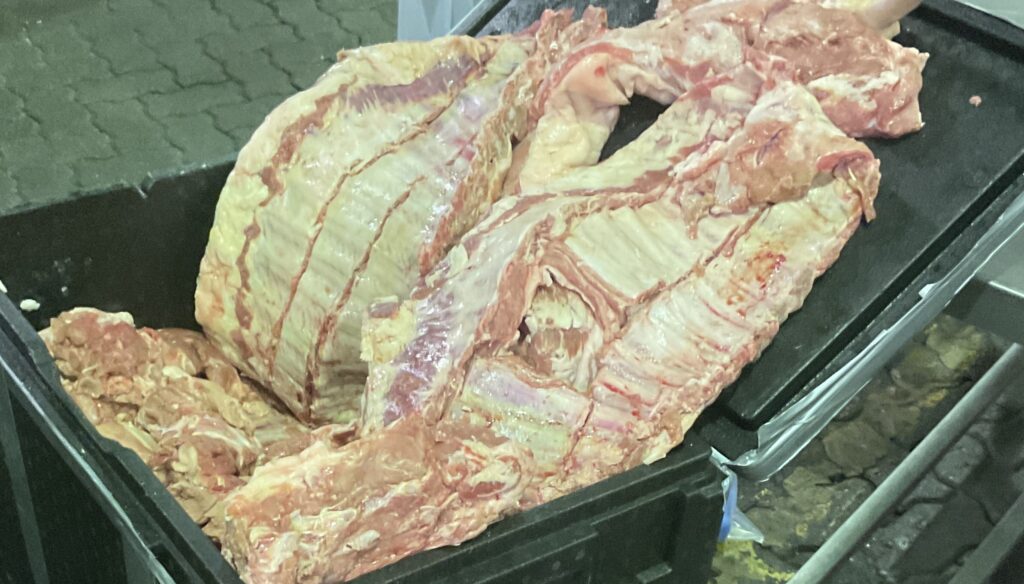The Dover Port Health Authority (DPHA) seized more than 20t of illegally imported meat in September alone, despite reduced funding and fewer people on the ground.
Lucy Manzano, DPHA’s head of port health and public protection, told BBC’s Farming Today programme that the amount of illegal meat found in vans and coaches is escalating.
Her interview followed the publication of two damning reports by the Environment, Food and Rural Affairs Committee (EFRA) in September warning that the illegal meat problem was at ‘crisis’ level and highlighting numerous flaws in the UK’s border controls, increasing the risk of diseases like foot and mouth or African swine fever entering the UK.
Ms Manzano said the 20.5t DPHA team at Dover, working alongside Border Force, seized in September compared with 1.3t in September 2022, a 15-fold increase. On month-by-month basis, they are seeing a 300% surge in products removed, she said.
“That’s only the products we are removing with very limited staff and, indeed, 30% less staff than we had in 2022,” she added.
“We’ve got to the point now where nothing really surprises the team. We are seeing every part of an animal across the full spectrum, whether it’s pig, beef, chicken, eggs, cheese etc, we’re getting every cut and presentation you could possibly imagine.
“These products are travelling for several days, sometimes up to a week within vehicles that do not have appropriate refrigeration or hygiene conditions, which obviously presents a much wider public health risk.
“The meat often displays signs of poor welfare and will be visually unclean and dirty and it comes in a range of packaging, including quite high-end packaging without labelling or marks or in reused plastic. These volumes are significantly rising and they are not what you would interpret as a personal imports.”
She said the products are often coming through the port ‘in plain sight’ in vans or often coaches, with much of it from eastern European countries, including some, like Romania, that are prohibited from exporting pork from certain regions due to ASF outbreaks.
She stressed that the meat is ‘very cheap to purchase’ and, as presented at market stores, looks ‘largely exactly the same as any other piece of meat that you would choose to purchase’.
Defra has said it has provided £3.1m of funding for DPHA this financial year, but Ms Manzano said DPHA hadn’t received any payments from Defra.
“Our funding has been cut and we have less staff now than we did in 2022. We are using our own intelligence to try and move with the trade. We only have capacity to cover 20% and so, from some hard work from the DPHA team, we are putting great effort into moving our work round to catch them when they are most likely to be coming.”
Defra response
Defra told the BBC the government has ‘significantly increased seizures of illegal meat, restricted the import of dangerous animal products and is investing over £1 billion in a new national biosecurity centre to protect our food supply farmers and economy’.
“We have steadily tightened the rules for importing meat into Great Britain and will continue to work closely with port operators, industry trade partners and Border Force to shield our livestock, crops and food chain from dangerous diseases,” it said.




